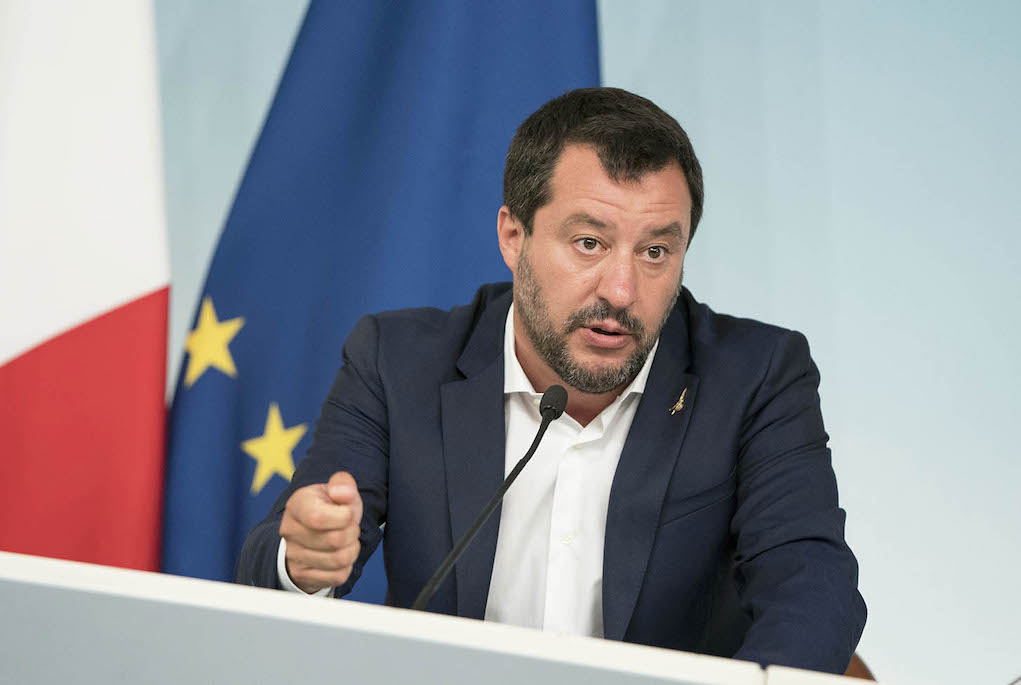On Monday, August 5, Matteo Salvini’s security decree on immigration was adopted by the Italian Senate in a highly controversial confidence vote. The vote represented a clear victory for the Italian Interior Minister and Vice Prime Minister Salvini, and for his far-right League party. The reform had already been passed by the House on July 24. Yesterday, the Senate approved it by 160 to 57.
The Five Stars Movement, the League’s ally in the Italian government, largely voted in favor, albeit some Five Stars senators did not back the reform. The other far-right party in the Italian Parliament, Fratelli d’Italia, and the center-right opposition party, Forza Italia decided to abstain in the final vote.
The security decree consists of 18 articles, mainly aimed at regulating the sea rescue operations. In the first article, the reform states that the Interior Minister is entitled to restrict or prohibit ships’ entry or transit in the Italian territorial waters. The article’s—and the whole decree’s—main target is represented by the NGO’s ships that seek to save migrants’ lives in the Mediterranean Sea, and that, according to the Law of the Sea, often identify Italy as the first safe harbor to disembark them. However, according to the decree, their entry into the Italian territorial waters can be prohibited, whenever the crime of facilitation of illegal immigration can be presumed.
The decree also raises maximum fines to 1 million euro (from a previous 50,000) for the captain of the ship that violates these rules. Under the new reform, the captain who ignores orders—as Sea Watch 3 Captain Carola Rackete did—could also be arrested, and the ship can be seized by Italian authorities. If the ship’s seizure is confirmed, the vessel will become Italy’s property.
Matteo Salvini’s security decree also allocates 500,000 euros for 2019, 1 million euros for 2020 and 1,500,000 euros for 2021 to counter the crime of facilitation of illegal immigration and increase the resources dedicated to illegal immigrants’ repatriation.
On May 15, the office of the UN High Commissioner for Human Rights has already expressed concern for Matteo Salvini’s security decree, a warning that came in the form of a letter signed by Beatriz Balbin, Chief of the Special Procedures Branch of the Office of the High Commissioner for Human Rights. “We wish to draw attention to your Excellency’s Government to the United Nations Convention on the Law of the Sea of 1982,” on the basis of which “every State has the duty to render assistance to any person found at sea in danger of being lost,” the UN experts wrote in the letter. According to them, the security decree failed to take into account the principle of non-refoulement laid down in the 1951 Geneva Convention: “In April 2019, following the escalation of military action in Libya, the U.N. High Commissioner for Human Rights stressed that Libya is not a safe port of returning and called on the European Union and its members to swiftly and collectively implement a coherent, human rights-based response to maritime migration from Libya”, they recalled.
Before the May 15 letter, the UN had already warned Mr. Salvini in relation to his immigration policies. In November 2018, the Office of the High Commissioner for Human Rights had severely criticized several aspects of the “first” reform—subsequently augmented by two new directives—such as the abolition of the “humanitarian protection” for vulnerable migrants who couldn’t be considered as refugees under current regulations.
These admonitions resulted in a harsh dispute between the UN and Mr. Salvini, who invited his international interlocutors to “care about Venezuela”.
This time, the UN High Commissioner for Refugees Filippo Grandi expressed his concerns on Mr. Salvini’s reform, that has already been criticized by several International Law experts during its examination in the Italian House of Representatives. According to the UNHCR, the imposition of fines and penalties could prevent the sea rescue operations carried out by private ships. No less importantly, the NGOs, the UNHCR underlines, play a crucial role in saving the lives of refugees and migrants who undertake a hazardous crossing, seeking to reach Europe. “Their commitment and the humanity that drives their actions should not be criminalized or condemned,” the UNHCR highlights.










